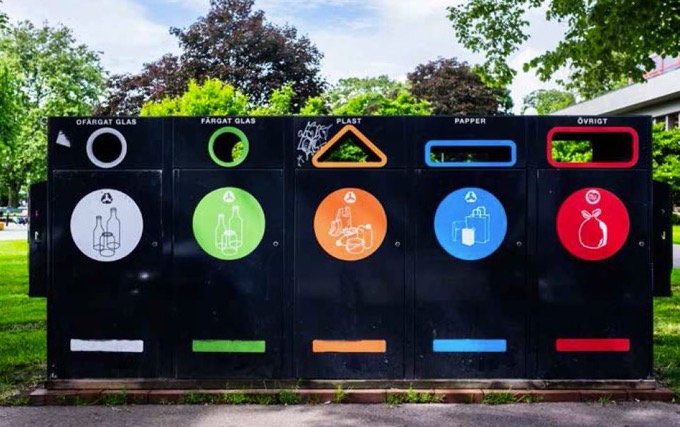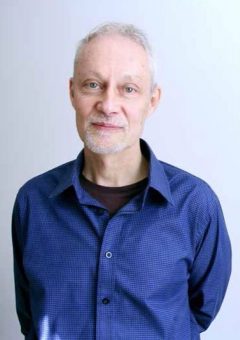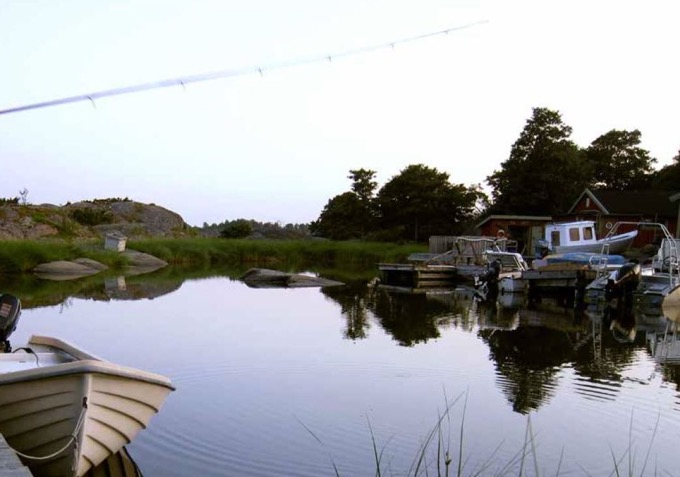
Swedish government agency for international development and cooperation – SIDA was founded with a mission to help reducing poverty in the world and to distribute humanitarian aid to people in the conflict zones worldwide. SIDA has been working in our country for more than two decades offering help on many levels and supporting reforms in a number of areas which Serbia has to take in order to become a member of the European Union.
This includes the environmental sector in which as well we are facing numerous challenges and essential problems. Having identified this area as one of the most important when it comes to its impact on national health, throughout last year SIDA donated 605.000 dollars for general environmental protection projects as well as 271.000 dollars for projects aimed to improve water and sanitation systems, while the greatest financial support (7,2 million dollars) was granted to the sectors of governance, democracy, human rights, and gender equality.
Swedish development cooperation is aiming for a holistic approach to Environment and Gender, says Robert Nygard, the First Secretary Programme Officer in Development Cooperation Section of the Swedish Embassy. “These are two areas where Sweden has pushed for mainstreaming, thus these perspectives should be an integrated part of all sectors. For instance, there should be analyses of the Environmental Impact and Socio-Economic consequences of all the projects dealing with development in general, that is industrial or urban development, agricultural production, and water management, etc.”
Given the mainstreaming philosophy, there are projects supported by Sweden which are classified as having some influence in the environment sector, though it is not the main objective. For instance, Sweden supports CSO (like REC) and Standing Conference of Towns and Municipalities (SCTM) which receives funding, although environmental support is not the main objective but rather governance and democracy. Out of the total annual budget, which currently is 11 M Euro, 51% of the budget and 34% of the number of projects (contribution) were classified as having Environment as its main objective in 2017. Currently, there are 6 environmental projects and they are all being carried out with the Ministry of Environmental Protection (MoE), and according to Robert Nygard, commonly they are implemented during a four year period.
“We believe that the Swedish Environmental Protection Agency (SEPA) (€0.5 million per year) was giving constructive support to the Serbian government negotiations for the opening of Chapter 27 of the EU acquis. SEPA was among other means of support, able to provide an adviser (former Minister of Environment in Lithuania) who led similar negotiations in his country. Much of the work boils down to assessing realistic transition periods during which Serbia could meet the targets specified in the various Directives. In case targets are not been met in time, Serbia could face large fines or miss opportunities to attract major investment, which has been the case for some of the recent EU members.”
The Swedish Chemical Inspectorate (SCI) has assisted its Serbian peer to upgrade the Serbian chemical register management both with hardware and software and training for several years with €0.2 million per year. Sweden is also supporting the Integrated Pollution Prevention Center (IPPC) located at the University of Belgrade Faculty of Metallurgy, for two years now, to assist industrial agriculture farms to obtain IPPC (Industrial Emission) permits. It is estimated to amount to about €0.5 million per year. The main goal of the project “IPPC Farms” was to assist competent authorities in Serbia and operators in the process of adopting a sustainable approach for implementation of IPPC/IE Directives in facilities for intensive rearing of poultry and pigs. The project involved more than 50 farms and covered the entire process, starting from drafting the IPPC application for permit (with the involvement and work with farms), writing the permits (work with competent ministry and municipalities), to the enforcement and monitoring activities related to checks of compliance with permit conditions (work with the republic and local inspectors). “We expect that about 10 farms will have the IPPC permits within a year”, says Robert Nygard adding that all Swedish development support is aiming to assist the Serbian EU accession. “Sweden has assisted the Ministry of Environmental Protection with Technical Assistance (TA) to help resolve 15 out of 20 “bottleneck” projects in Waste Water Treatment Plant (WWTP) and Waste Management (WM) sectors that date back to 2012”.
Swedish development cooperation is aiming for a holistic approach to Environment and Gender, says Robert Nygard, the First Secretary Programme Officer in Development Cooperation Section of the Swedish Embassy

Some of the results from Swedish Support have been:
- Waste management options analysis for Kragujevac
- Landfill risk assessment for Kalenic
- Outline for landfill alternatives in Zrenjanin
- Terms of reference for studies and design of Batajnica (Belgrade) wastewater collection and treatment
- Study of Novi Sad regional waste system
- Feasibility study for Nis wastewater
- Review of tender documentation for the Leskovac sludge line
In addition, Swedish support has been used to build the waste transfer station in Cacak, bringing into operation the sanitary landfill in Pancevo, stabilization of the regional landfill in Duboko, introduction of household recycling in Arilje, building a recycling yard in Bajina Basta and construction of a wastewater treatment plant in Kruscica (Bela Crkva). In 2016 two consultancy firms contracted were awarded after a tendering procedure which will be assisting the MoE with technical assistance for WWTP and WM for a 4 year period.
Complementarity to EU IPA funding of projects is the main criteria’s deciding on Swedish contribution in all sectors, so the EU acquis is the main criteria for the whole Swedish Western Balkan strategy 2014-2020. Another criterion is manifested in Serbian ownership in terms of national contribution in available sta or funds. After receiving a proposal from a Serbian partner which is often the Ministry of Environmental Protection, the Embassy makes an assessment of relevance a scrutiny of the budget often with the external consultant familiar with Swedish development objectives and Serbian conditions and policies to make a more informed decision.
Given the large investment needs in WWTP and WM 44 (Heavy Investment Directives) which will take place over a long period, throughout all Serbian cities and municipalities, there is a need to have a prioritized list of projects a Single Project Pipeline (SPP) to be presented for the EU IPA funding. “My understanding is that it has been difficult for the government to prepare an SPP with well-prepared mature project proposals. In many cases, these projects require designing, building and operating technology that has never before been built in Serbia so some delays might be expected. Having said that, it appears that now is the time for a fully staffed environmental ministry, a clear strategy and strong cooperation and local leadership from the cities and municipalities to move forward”, explains Robert stressing that Serbia stated the establishment of source separation, starting with a two-bin system of dry and wet fractions, as the short-term priority whereas the long-term goal is the establishment of a system to achieve the recycling rate of municipal waste of minimum 50% until 2030.
Transitioning to a recycling culture is one of the most important steps to generate projects and investment. Under the Article 53 of the Serbian National Law on Waste Management*, local self-governments are obliged to introduce and implement selection and separate collection of waste for recycling not later than three years from the date of entry into force of the Law (the Law came into force in 2016) and, households and other municipal waste producers are obliged to select municipal waste for recycling.
“It is estimated that there are over 3000 non-sanitary landfills or dumpsites in Serbia which should be closed down, remediated and replaced by some 26 regional sanitary landfills. In Sweden, only 5% percent is not recycled, which is the EU ambition. It is necessary to introduce ‘source’ or ‘household’ separation to reduce the operational costs of regional sanitary landfills”, says Robert Nygard having in mind that recycling helps minimize the use of landfill space, cuts down the need for mixed waste transport costs, creates new jobs and generates revenue from secondary raw materials. But, it must be recognized, that recycling will cost more than just dumping waste in the ground.
Behavioural change is seldom easy and it is challenging to persuade citizens to take on more work voluntarily and separate waste into different material types unless they fully understand and accept the reasons why this will benefit them directly or indirectly.
According to Robert, experience from other countries going through the same experiences has shown that building modern water and wastewater infrastructure requires the largest investment of time, money and effort. So, the EU delegation has assessed, and Sweden concurred, that WWTP and WM are the most urgent areas to address from many perspectives, that is multidimensional poverty perspective.
The biggest problems often appear to appear in the planning process. Establishing a shared understanding of the size of projects, the standards expected in construction and operation, affordability limits and the staffing required to design, build and operate facilities requires time and experience.
“Developing projects for multi-million euro grants requires a Serbian investment in the key project staff in public institutions. Sweden can support Serbia with some specialist expertise but can only, and will only, do so if there are national counterparts ready to operate at this high level”, says Robert.

Larger cities, not just the capital, should be leading the way. Unless Serbia resolves the vast majority of waste being generated by the urban centres then changes in the smaller towns or rural areas will not sufficiently improve the quality of the environment of the country. Recent progress has been seen through the actions of the Ministry of Environment, with Swedish support, to bring projects in Belgrade, Novi Sad, Nis, and Kragujevac to the point they can be financed and built.
“The best example of overall progress in the Ministry is that after a 3-year pause in funding for environmental projects, the EU has accepted with EU IPA 2017 that Serbia has the capacity to manage new investments. While this does not mean that all skills and capacity issues are resolved, it is a sign of progress”, confirms Robert expressing his hope that the cooperation between Swedish Development Cooperation Agency and Serbian partners will lead to experience from individual projects that then lead to better, more practical national plans that lead to new, bigger investments and tangible changes to environmental quality for everyone living in Serbia.
Prepared by: Tamara Zjacic
* Law on Waste Management (the Official Gazette of the Republic of Serbia, No. 36/2009, 88/2010 and 14/2016), Article 53.
This content was originally published in the eighth issue of the Energy Portal Magazine ECOHEALTH, in November 2017.




